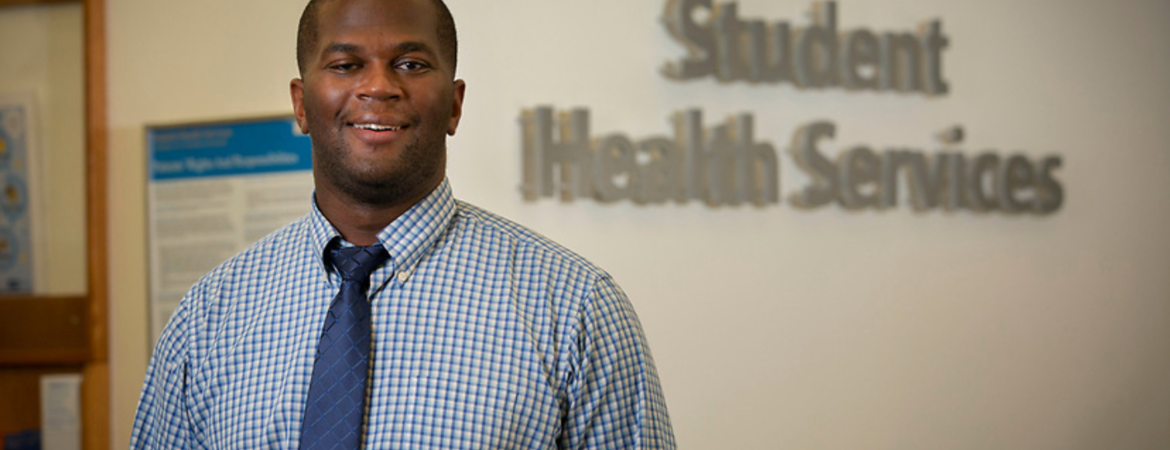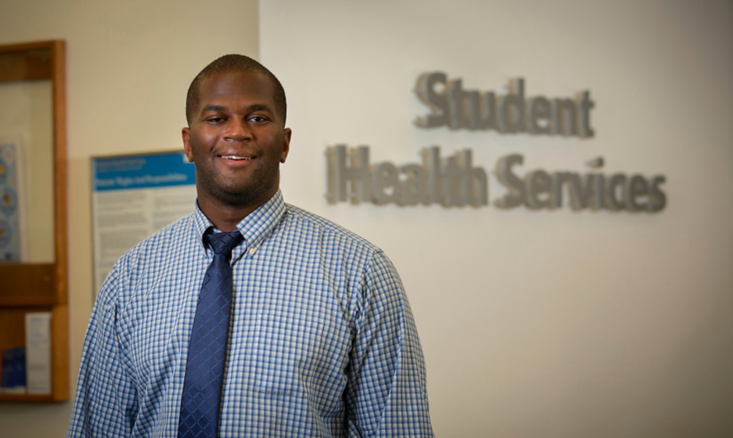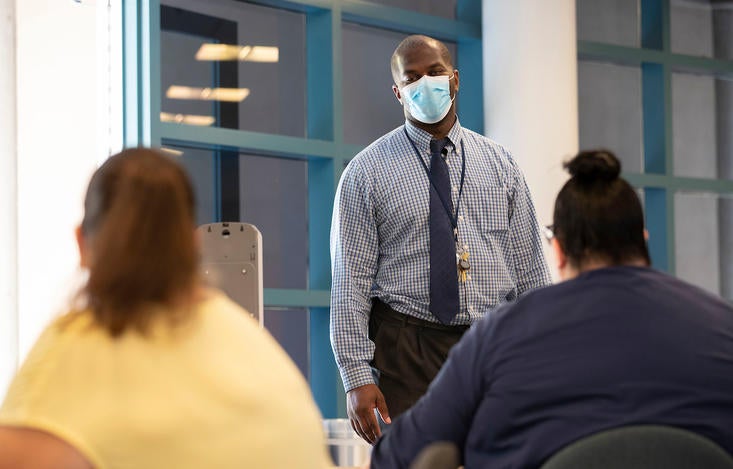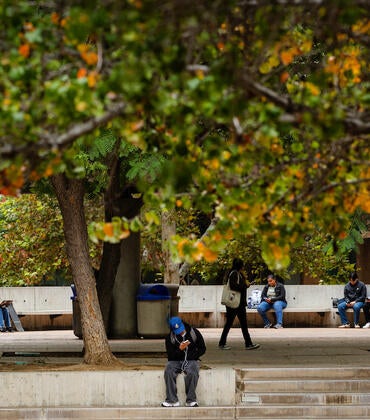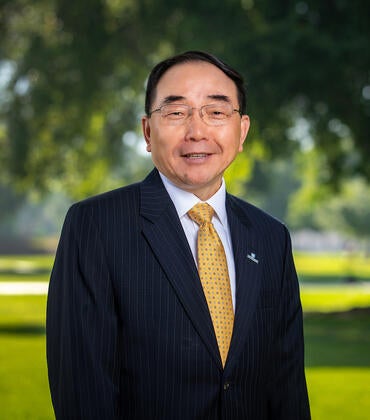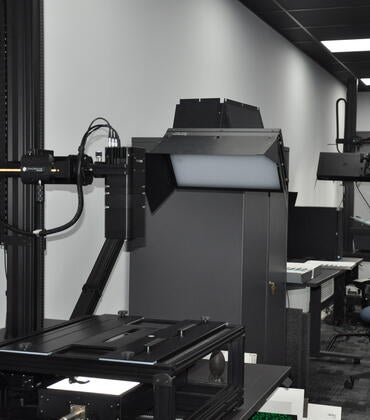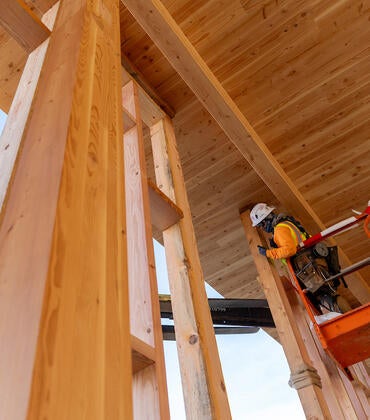William Rall, senior administrative director of Student Health Services, or SHS, at UC Riverside, arrived on campus in August 2020 in the midst of the coronavirus pandemic.
Rall, who has 16 years of health care experience at UC Irvine Health and Kaiser Permanente, began his new role with no first-hand knowledge of SHS operations before the coronavirus brought life to a crawl. However, he was well prepared to lead an SHS that had to be rapidly transformed during the pandemic.
A practice manager at UCI Health before he joined UCR, Rall, 40, had to hit the ground running. He prepared his team of doctors, nurses, and other staff for weeks to ready them for students who began returning to campus last weekend. About 800 students are moving into the residence halls and 600 students into campus apartments. Roughly 900 students never left the apartments, bringing the total number of students living on campus to 2,300.
SHS attends to the needs of these students, both in person and through telehealth. Typically, SHS staff members administer flu shots and other required immunizations, perform physical exams, and attend to students who show symptoms of illness, including COVID-19. Birth control, dental care, lab work, and STI testing are common reasons students visit SHS. Visits that don’t have to be face-to-face are done using telehealth, a popular online option in a pandemic for many students because of convenience, no transportation time, less chance of catching new illnesses, far less time spent in the waiting room, and faster access to specialists.
Rall stressed that all students who wish to live in the residence halls and apartments have to get tested for the coronavirus.
“Currently, if you are in the residence halls, you get tested twice a week,” he said. “If you live in the apartments, you get tested twice a month.”
To facilitate coronavirus testing, SHS established a testing station at the Bear Cave in Pentland Hills. SHS selected the location after discussions with Student Life and Housing.
“When students arrive at our station, they are screened for coughs, difficulty breathing, congestion, and other COVID-19 symptoms,” Rall said. “If they are asymptomatic, they do a ‘spit and go.’ They simply spit into a cup and leave. Their saliva is then sent to the testing lab in the Multidisciplinary Research Building for analysis. We don’t want students to be hanging around at the stations. So, we have designed the process to move student traffic quickly out of the testing sites. A quick spit and go is our goal.”
Symptomatic students are triaged, and if needed, must provide nasal specimens for testing. They are asked to call 951-827-3031, a COVID-19 hotline for students set up by SHS. These students are then quarantined — barring extenuating circumstances — and, depending on their location, cared for by campus staff.
“We are asking students not to go to the Multipurpose Research Building to get tested,” Rall said. “They need to go to our ‘spit and go’ station that we have set up expressly for their mandatory testing.”
Rall is pleased with how the student testing has gone so far and credits his team’s commitment, dedication, and long hours of hard work.
“What you are seeing is the power of teamwork and unity,” he said. “We couldn’t have come to this point without the extraordinary effort of several people on campus who have been on the COVID-19 frontlines. Dr. Kenneth Han, our chief medical officer, has invested many hours to prepare for the return of our students and contributed enormously to getting SHS ready for the pandemic. SHS has been around since the 1950s. We go a long way back and have people who have been battle tested. Without their strong expertise, deep knowledge, and vast experience, preparing SHS for a pandemic would have been far more challenging.”
